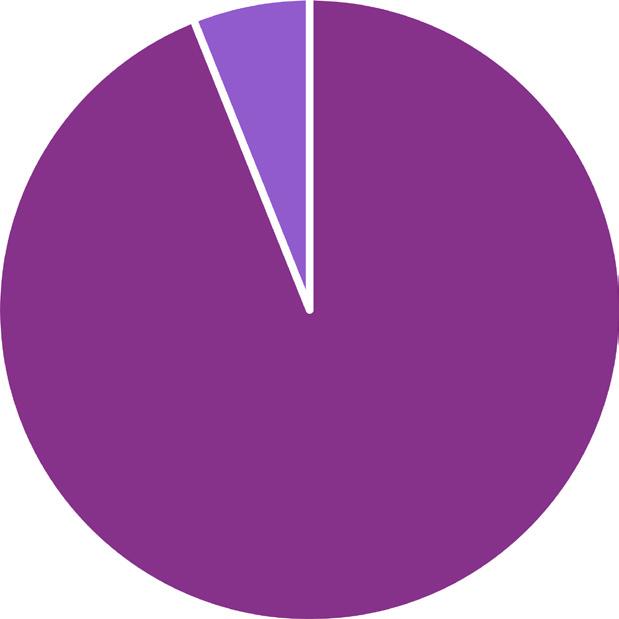
3 minute read
CURRICULUM, AUDIT AND RESPONSIBLE FUTURES
PRINCIPLE 3: METHOD, PRINCIPLE 5: PARTNERSHIP AND PRINCIPLE 6: DIALOGUE
Over the 2017-18 academic year, a curriculum audit was conducted on behalf of the Responsible Futures Steering Group at the University of Winchester and Winchester Students’ Union. The aim of the curriculum audit was to determine the current levels of teaching, learning, and assessment relating to the UN SDGs, the University Values, and Education for Sustainable Development pedagogy within taught undergraduate modules. It sought to: identify existing good practice; open up a discussion with academics, deans, and across faculties; and establish a quantitative baseline which allows for replicability to track progress over time.
BACKGROUND
The audit built on earlier work that highlighted examples of good practice in this area (reported to the University Planning and Resources committee) and is in line with the University’s agreed strategy on Climate Change Education and Communication. The University has a commitment to see all students learn about climate change (and the SDGs) through their studies and wider curriculum at Winchester and this project helps to track if this is happening, and where. The audit contributes to the University and Students’ Union’s work towards its Responsible Futures accreditation1. This accreditation requires partnerships (between the SU and university) to have demonstrable progress in embedding sustainability across the curriculum and, at Winchester, we decided to use the curriculum audit as one tool in tracking this.
We know from SOS research that 81% of students want to learn more about sustainability, 70% of students think sustainability should be included in university courses, and 91% of students think sustainability should be a priority for their institution2 . This project has helped the University and Student Union to achieve their aim of meeting this student demand by giving us valuable insights into where good practice and gaps exist across the University. From 2019/2020 the SDGs have been included in the learning outcomes of all programmes across the University in relation to the relevance for subject specialisms.
This is to ensure that all students regardless of discipline will have education for sustainable development before they graduate.
1 sustainability.nus.org.uk/responsible-futures/about 2 sustainability.nus.org.uk/our-research/our-reports
METHODOLOGY
The methodology for the audit was developed by Professor Carole Parkes and Quinn Runkle, Director of Education at Students Organising for Sustainability (SOS) and was informed by best practice from across the sector. The curriculum audit used the SDGs to describe the breadth of sustainability content in modules. The University Values (individuals matter, compassion, and spirituality) were also tracked to ensure local applicability and relevance. As a joint student and University project, students were recruited from across the university to conduct the audit. All students received training on the methodology and worked under the guidance of the Responsible Futures team. The methodology also provided the capacity for auditors to raise questions and record qualitative notes. This methodology has since been shared with other Universities and adopted/influenced the work of six other institutions in the UK. The curriculum audit covered all four Faculties across the University – a total of almost 1500 modules. All results were fed back to individual Faculties and work commenced on ensuring the integration of the SDGs into the formal curriculum to ensure that all students at Winchester have education on the SDGs as part of their programme. The audit also considered modules by level/year in which they are taught in and their status (core or optional). Pedagogy and teaching methods were also examined to see how the SDGs and Winchester Values were applied.
Of the 228 modules audited in the Faculty 195 included a reference to at least one of the SDGs. At that time it was acknowledged that many modules would have been introduced prior to the SDGs being launched but this provided a very encouraging baseline for development. Over that last year, the policy of ensuring all students have ‘education for sustainability before they graduate’ has led to the SDGs being further embedded into the curriculum.
The charts below indicate the extent to which the 33 programmes in the Faculty have embedded the SDGs.
FACULTY OF BUSINESS LAW AND DIGITAL TECHNOLOGIES PROGRAMMES WITH SDGS
Programmes that include 2 or more SDGs
5 or more SDGs Under 5 SDGs
2
9

31 24











